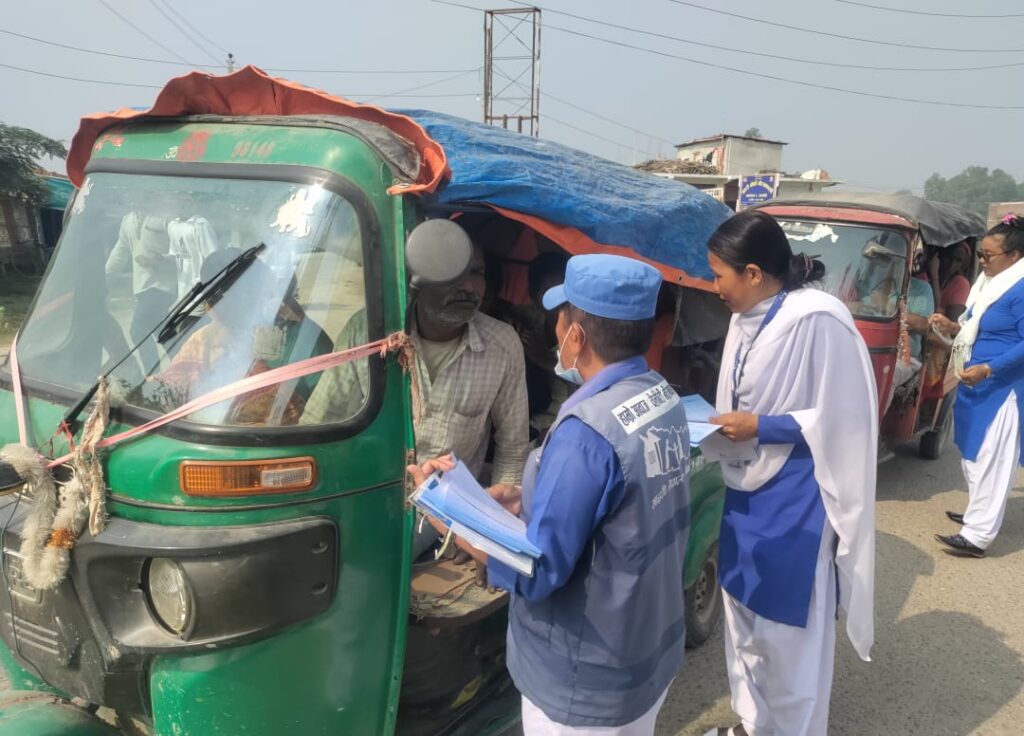Nepal shares an open border of 1,850 kilometers with India, where weak identification procedures make it easy for traffickers to smuggle women and children across. Many victims are taken to India, China, and Gulf countries under false promises of jobs, marriage, or a better future. Some traffickers exploit the 24-hour travel permit for border district residents, using it to traffic Nepali girls into China.
To combat this, we have established 15 Transit Homes—11 at key Nepal-India border points, 1 near the Nepal-China border, and 1 each in Kathmandu and Kavre. These homes work closely with border police, deploying surveillance teams to monitor crossings, intercept traffickers, and rescue at-risk individuals.

Survivors receive immediate shelter, protection, counseling, and medical care at our Transit Homes. We also provide anti-trafficking awareness and safe migration guidance. For those needing long-term support, we connect them to our central office, where they receive vocational training and education to rebuild their lives.
Beyond rescues, our Transit Homes collaborate with local governments, civil society, and communities to run awareness programs addressing trafficking, rape, and domestic violence. Our goal is not just to save lives but to empower survivors to reclaim their dignity and independence.
Objectives
- Intercept the girls and women at risk of trafficking from the border.
- Provide the victims/survivors with comprehensive services including legal support, counseling, and better life options.
- Organize awareness, advocacy, and networking activities in the district
- Facilitate and support legal prosecution against criminals
- Support the police at the border to inspect the vehicles and identify girls and women at risk of trafficking.
